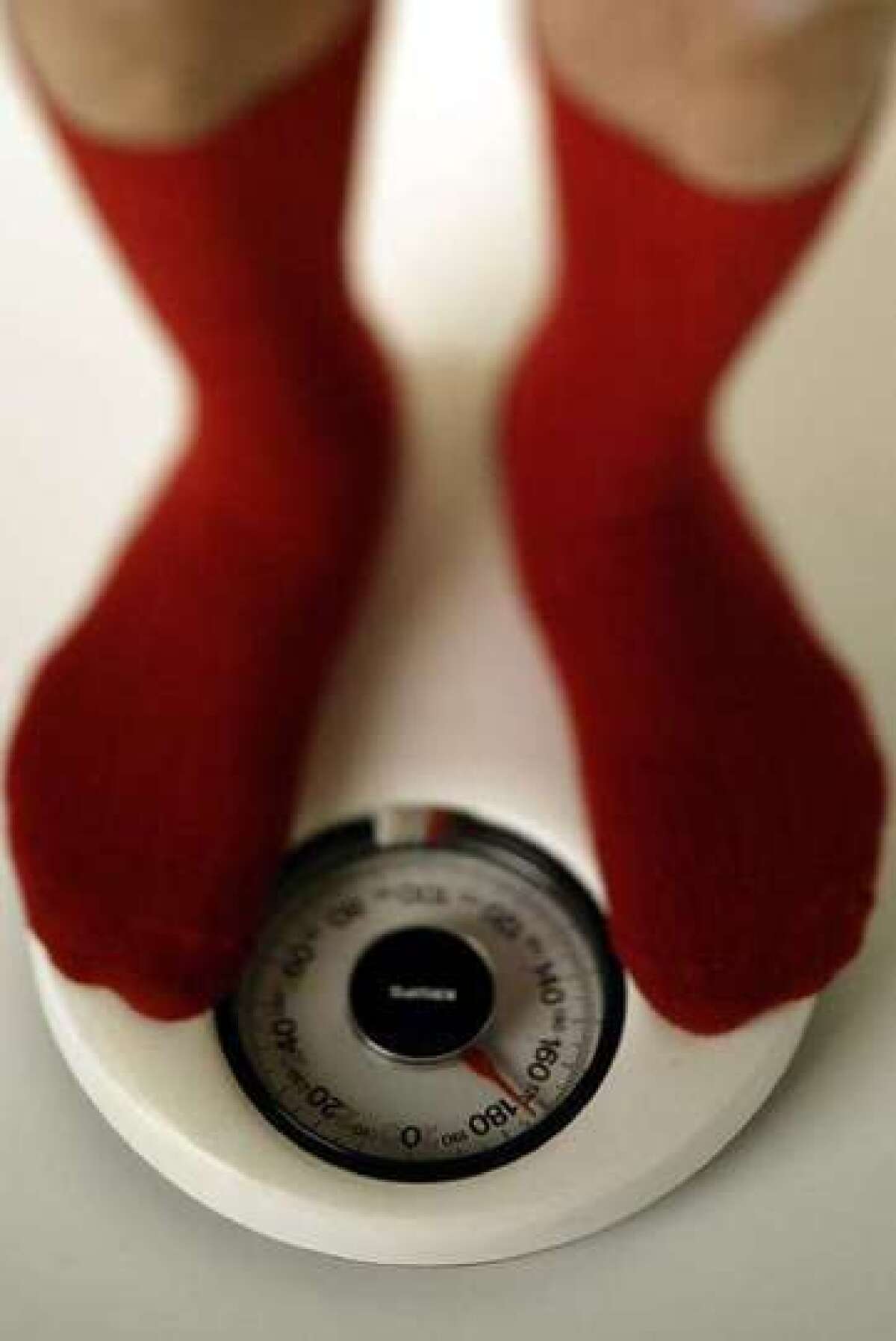New year, new diet. Or maybe same old diet. What works?

- Share via
If only our collective memories worked a little better, we might recall that facing the new year with a little extra weight is what we did a year ago. And the year before that. Were those extra helpings of whatever it was – can you even remember? – worth it?
No matter, diet season is here for many of us.
Maybe your 2013 resolve is not to be at the same threshold in 2014. But for now, you might be thinking about which diet will work best, fast and with the least pain. Are you willing to spend money? Looking for free advice?
Consumer Reports, in its February issue, reports on what more than 9,300 readers said about diets they’d been on in the last three years. Here’s what they said about 13 plans:
On reader satisfaction, a free smartphone app called MyFitnessPal scored highest – 83 out of 100. The Paleo and the Mediterranean diets, Weight Watchers, South Beach, the Glycemic Index diet, and SparkPeople also scored above 70.
Consumer Reports looked at both do-it-yourself plans and commercial programs, such as Medifast, that sell a program and meal replacement products.
Forty-three percent of the survey respondents said they’d signed up for Weight Watchers, which combines support meetings with an eating program. The second most popular plan was a generic low-carbohydrate diet.
People using Medifast lost more pounds than readers on other diets. And men lost more pounds than women. But as a percentage of body weight, the battle of the sexes was a near tie. Almost all the people who responded to the survey question on weight loss shed a significant amount – whether on low-calorie programs, meal replacement plans or those that let you make all the choices.
The survey participants gave mostly middling ratings on their satisfaction with the diets on maintaining weight loss, and the magazine suggests dieters practice maintenance skills even before they go on a diet.
Whatever choice a dieter makes, one expert recommended a food and activity journal.
“It really works. It’s a pillar of behavioral science. The more you monitor, the smarter you get about your food and exercise habits,” said Dr. Chris Sciamanna, a Penn State College of Medicine professor and consultant for the Consumer Reports project.
Perhaps that’s why MyFitnessPal scored high. It enables users to keep a diary and includes a bar code scanner. SparkPeople also is a website and app product; Weight Watchers also has a phone and website program for members. Respondents gave all those high marks for keeping them aware of calories.
Respondents also liked programs that helped them change their habits – eating more produce, moving more, self-control strategies. And those who tried Weight Watchers recommended the meetings.
“When you go to a group, you get accountability to another human being and the belief that change is possible, because when you look around, you see that somebody is doing well,” Sciamanna said.
Only 13% of the respondents came within five pounds of their weight loss goals; but almost 45% lost at least 10% of their starting weights.
Consumer Reports noted that very low-calorie diets could lead to complications, and recommends consulting a doctor first. Most people can safely lose one to three pounds a week, it said.
Consumer Reports also noted that its subscribers are older and wealthier than the average American, so their experiences may not be typical for the U.S. population.
And if you heaved a too-big-belly sigh of relief over hearing about a study suggesting a little extra weight is good for longevity, hang on. There’s a lot of controversy out there about that news.
Mary.MacVean@latimes.com
@mmacvean on Twitter







